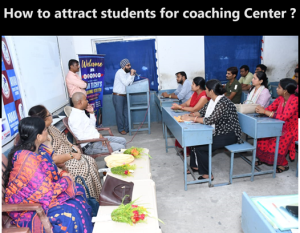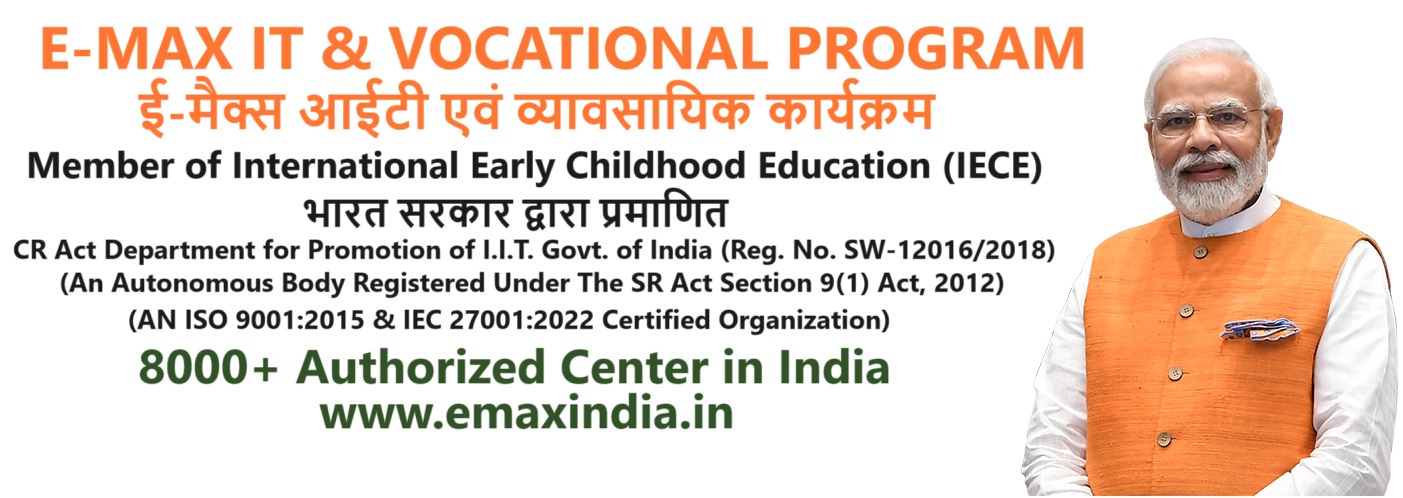How to Increase Students in Coaching Classes: Step-by-Step Guide
How to Increase Students in Coaching Classes: Step-by-Step Guide:

Increasing student enrollment in coaching classes is crucial for the growth and sustainability of any educational institution. Whether you’re running a small tutoring service or a large coaching center, attracting and retaining students is a top priority. This comprehensive guide will walk you through effective strategies to boost your student numbers and create a thriving learning environment.
Understanding Your Target Audience
Identifying Your Ideal Student
The first step in increasing student enrollment is understanding who your ideal students are. Consider factors such as age, academic level, interests, and learning styles. By identifying your target audience, you can tailor your marketing efforts and curriculum to meet their specific needs.
Analyzing Student Needs and Preferences
Once you know your target audience, dive deeper into their needs and preferences. Conduct surveys, focus groups, and one-on-one interviews to gather insights. Understanding what students and parents are looking for in a coaching class will help you develop programs that stand out.
Optimizing Your Coaching Program
Curriculum Development
An effective curriculum is the backbone of any successful coaching class. Ensure your curriculum is up-to-date, comprehensive, and aligned with current educational standards. Incorporate a mix of theoretical knowledge and practical applications to make learning engaging and relevant.
Incorporating Feedback and Improvements
Regularly seek feedback from students and parents to identify areas for improvement. This can be done through surveys, suggestion boxes, or informal conversations. Use this feedback to refine your programs and address any concerns.
Effective Marketing Strategies
Apply Now For Admission Apply now for Franchise
Utilizing Social Media
Social media platforms like Facebook, Instagram, and LinkedIn are powerful tools for reaching potential students. Create engaging content, share success stories, and run targeted ad campaigns to attract new students.
Search Engine Optimization (SEO)
Optimize your website and content for search engines to increase visibility. Use relevant keywords, create high-quality content, and ensure your site is mobile-friendly. A strong SEO strategy will help you rank higher in search results and attract organic traffic.
Email Marketing Campaigns
Email marketing is an effective way to keep in touch with prospective and current students. Send out regular newsletters with updates, success stories, and special offers. Personalize your emails to make them more engaging and relevant.
Creating a Strong Online Presence
Developing a User-Friendly Website
Your website is often the first point of contact for potential students. Ensure it is well-designed, easy to navigate, and provides all necessary information. Include clear calls-to-action, contact details, and an FAQ section to address common queries.
Importance of Online Reviews and Testimonials
Positive reviews and testimonials can significantly impact a student’s decision to enroll. Encourage satisfied students and parents to leave reviews on your website and social media pages. Highlight these testimonials to build credibility and trust.
Engaging Content Creation
Blogging and Content Marketing
Start a blog on your website to share valuable insights, tips, and resources. Content marketing helps establish you as an authority in your field and attracts potential students through informative and engaging posts.
Creating Educational Videos
Videos are a highly effective way to engage students. Create educational videos that explain complex concepts, share success stories, or provide a glimpse into your coaching classes. Upload these videos to YouTube and your website.
Offering Free Resources and Workshops
Benefits of Free Classes and Workshops
Offering free classes or workshops is an excellent way to showcase your coaching skills and attract new students. These sessions give potential students a taste of what you offer and can encourage them to enroll in your paid programs.
How to Plan and Promote These Events
Plan your free sessions carefully, ensuring they provide real value. Promote these events through social media, email marketing, and local community boards. Follow up with attendees to encourage them to sign up for your full programs.
Building Community Relationships
Partnering with Local Schools and Organizations
Form partnerships with local schools, colleges, and community organizations. This can help you reach a broader audience and gain credibility. Offer to conduct workshops, provide resources, or collaborate on educational projects.
Hosting Community Events
Host events such as open houses, educational fairs, or community service projects. These events not only raise awareness about your coaching center but also build a positive reputation within the community.
Enhancing Student Experience
Improving Classroom Environment
A positive and conducive classroom environment enhances learning. Ensure your classrooms are well-equipped, comfortable, and visually appealing. Use technology and interactive teaching aids to make lessons more engaging.
Implementing Interactive Teaching Methods
Interactive teaching methods such as group discussions, hands-on activities, and real-life applications make learning more effective. Encourage student participation and foster a collaborative learning atmosphere.
Parental Engagement
Communicating with Parents Effectively
Regular communication with parents is key to student success. Keep parents informed about their child’s progress, upcoming events, and any areas of concern. Use emails, newsletters, and parent-teacher meetings to maintain open lines of communication.
Organizing Parent-Teacher Meetings
Parent-teacher meetings provide an opportunity to discuss a student’s performance and address any issues. Schedule regular meetings and provide a comfortable setting for open and honest discussions.
Leveraging Technology in Education
Using Educational Apps and Tools
Incorporate educational apps and tools into your teaching methods. These resources can make learning more interactive and accessible. Choose apps that align with your curriculum and enhance the learning experience.
Online Learning Platforms
Offer online classes and resources through learning management systems (LMS). This provides flexibility for students and expands your reach beyond geographical boundaries. Ensure your online platform is user-friendly and provides a seamless learning experience.
Student Retention Strategies
Providing Continuous Support
Support doesn’t end after enrollment. Provide continuous academic and emotional support to your students. Offer tutoring, counseling, and mentoring programs to help students succeed.
Reward and Recognition Programs
Recognize and reward student achievements to boost motivation and retention. Implement programs such as student of the month, awards for academic excellence, and public recognition for achievements.
Teacher Training and Development
Importance of Professional Development
Investing in teacher training and development ensures your staff is equipped with the latest teaching techniques and knowledge. Regular professional development programs enhance the quality of education you provide.
Training Programs for Teachers
Offer regular training sessions and workshops for your teachers. Focus on areas such as classroom management, use of technology, and new teaching methods. Encourage teachers to attend external seminars and conferences as well.
Monitoring and Analyzing Progress
Setting Measurable Goals
Set clear, measurable goals for your coaching center. These goals should align with your overall vision and provide a roadmap for success. Regularly review and adjust these goals based on your progress.
Using Data Analytics to Track Success
Utilize data analytics to monitor and analyze your coaching center’s performance. Track metrics such as enrollment numbers, student performance, and retention rates. Use this data to make informed decisions and improvements.
Conclusion
Increasing student enrollment in coaching classes requires a multifaceted approach. By understanding your target audience, optimizing your coaching program, implementing effective marketing strategies, and enhancing the student experience, you can create a thriving learning environment. Stay committed to continuous improvement and engage with your community to build a strong reputation and attract more students.
FAQ (How to Increase Students in Coaching Classes: Step-by-Step Guide)
How long does it take to see results from these strategies?
The time frame for seeing results can vary based on your specific situation and how effectively you implement the strategies. However, most coaching centers start to see noticeable improvements within 3 to 6 months.
Are free resources and workshops effective in attracting students?
Yes, offering free resources and workshops can showcase your coaching skills and provide potential students with a glimpse of what you offer. This can be a highly effective way to attract new students.
What are the best marketing strategies for a coaching center?
Effective marketing strategies include utilizing social media, optimizing your website for search engines, running email marketing campaigns, and creating engaging content such as blogs and videos.
How important is teacher training for a coaching center?
Teacher training is crucial as it ensures your staff is equipped with the latest teaching techniques and knowledge. Well-trained teachers provide high-quality education, which is essential for student success and retention.
Can technology enhance the learning experience in coaching classes?
Absolutely. Incorporating educational apps, tools, and online learning platforms can make learning more interactive and accessible. Technology can greatly enhance the overall learning experience and help attract tech-savvy students.
student enrollment, increase students, coaching classes, educational marketing, student retention, teacher training, SEO for coaching, community engagement, parental involvement, online learning platforms


